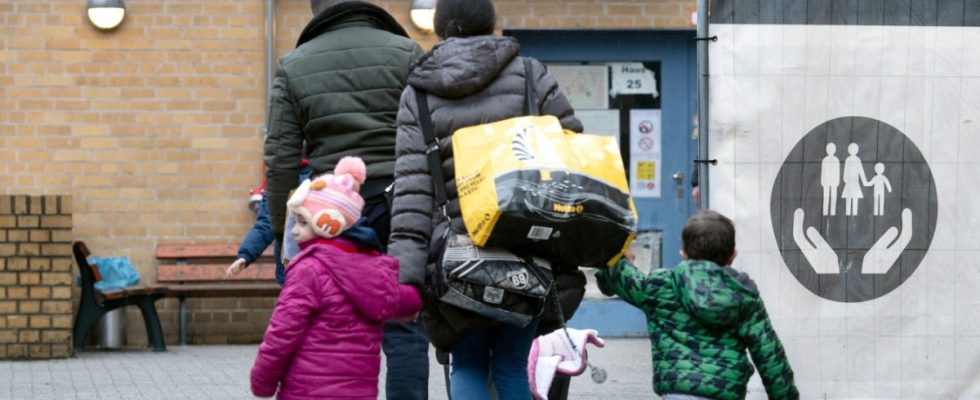The number of rejected asylum seekers in Germany who are required to leave the country has fallen compared to the end of 2022. According to the Central Register of Foreigners, there were 155,448 people living in Germany at the end of August this year whose applications for asylum were rejected. At the end of 2022 there were still 167,848. This emerges from a response from the federal government to a request from the left-wing Bundestag member Clara Bünger, which the South German newspaper is present.
Accordingly, 135,984 of the rejected asylum seekers have a toleration status – around nine out of ten people in this group. They actually have to leave Germany, but cannot be deported for certain reasons, such as missing identification documents or because they are sick. 19,464 people are required to leave the country and do not have any tolerated status.
“Not 300,000, as CDU leader Merz recently claimed, but only a good 155,000 rejected asylum seekers who are obliged to leave the country live in Germany.”
In view of this data, the left-wing politician Bünger comes to the conclusion that the debate about stricter deportation procedures is based on “completely wrong numbers”. “Not 300,000, as CDU leader Merz recently claimed, but only a good 155,000 rejected asylum seekers who are obliged to leave the country live in Germany. And the vast majority of them have a toleration status, which means that in many cases they cannot or may not be deported at all “says Bünger.
With his statements about the number of rejected asylum seekers in Germany, the party and parliamentary group leader of the CDU, Friedrich Merz, triggered a heated debate at the end of September. In a panel discussion at the news channel WORLD Merz said that “300,000 asylum seekers were rejected” who “did not leave the country” and received full benefits.
The number that Merz was actually alluding to with his statements includes the total number of people obliged to leave the country. At the end of 2022 it was just over 300,000 people. At the end of August 2023 it had fallen to 261,925, which was partly due to tolerated persons making use of the Opportunity Residence Act and applying for a trial residence permit.
As the figures from the federal government’s response show, of the approximately 260,000 people required to leave the country, fewer than two thirds of them are rejected asylum seekers. The rest have to leave the country for other reasons, such as because their visa or residence permit has expired.
Most of the rejected asylum seekers forced to leave the country, more than 22,000, come from Iraq. This is followed by Nigeria, Russia, Afghanistan and Iran. This shows “that a rejection of asylum does not necessarily mean that people can simply be deported, as is often assumed,” says Clara Bünger. “Instead of right-wing propaganda and further tightening of the law, we need an effective right to remain regulation and humanitarian decisions in individual cases,” says the left-wing politician.
For example, the federal government suspended deportations to Afghanistan after the Taliban came to power in 2021. After the start of the Russian war of aggression on Ukraine, deportations to Russia were considered difficult or even impossible for practical reasons. It was only in the spring of this year that there were reports of the first deportations to Russia, mainly criminals.
Chancellor Olaf Scholz (SPD) has invited people to a summit meeting in the Chancellery on Friday evening. Representatives of the federal states and CDU leader Friedrich Merz are expected to take part. It is expected that this will also be about migration policy. The traffic light coalition already agreed on a package of measures on Wednesday that, among other things, deals with accelerated deportations.

